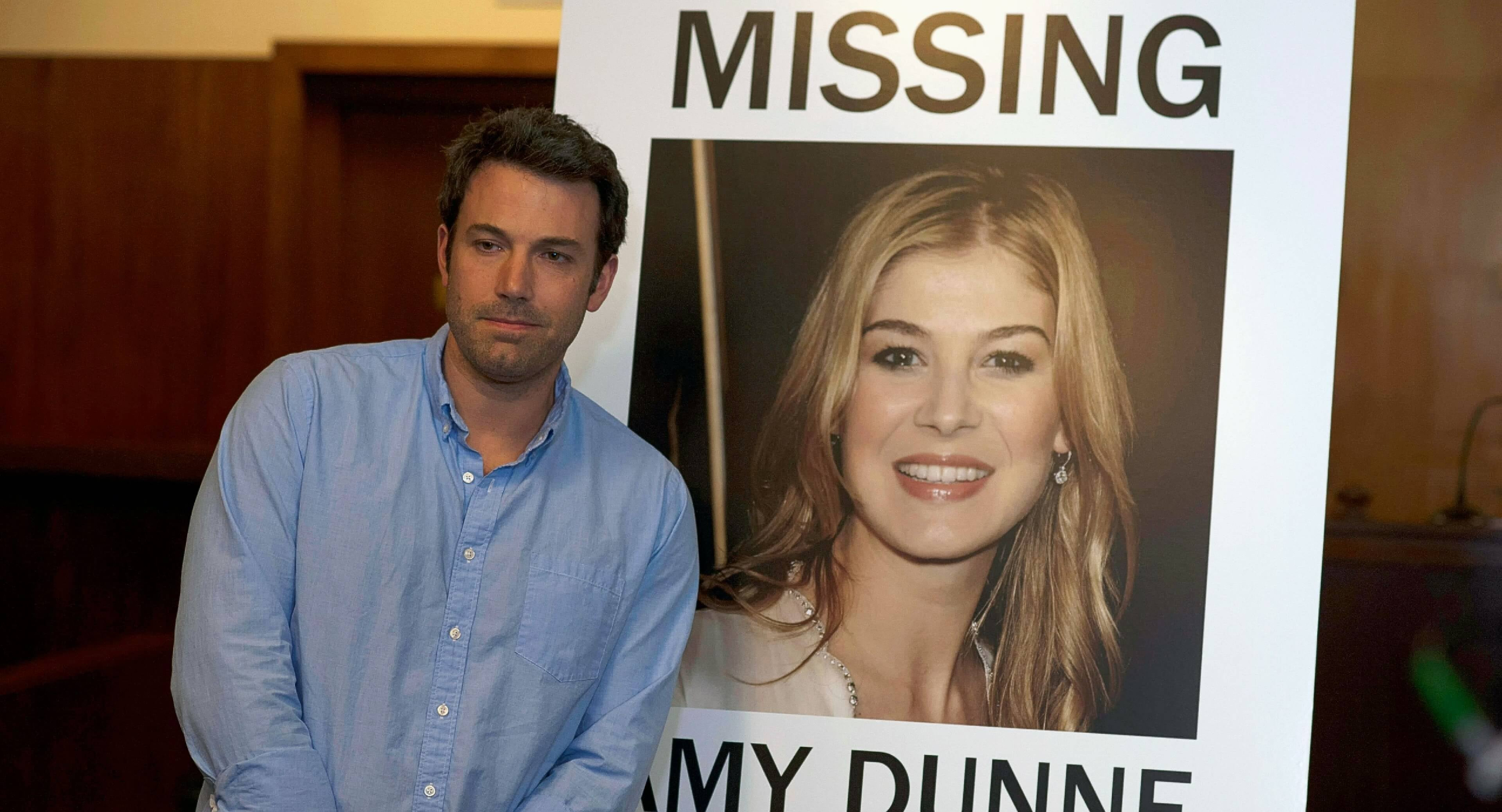Gone Girl – Film Review
Published July 27, 2023

In Carthage, Mo., former New York-based writer Nick Dunne and his glamorous wife Amy present a portrait of a blissful marriage to the public. However, when Amy goes missing on the couple’s fifth wedding anniversary, Nick becomes the prime suspect in her disappearance. The resulting police pressure and media frenzy cause the Dunnes’ image of a happy union to crumble, leading to tantalizing questions about who Nick and Amy truly are.
David Fincher, a director known for his dark and thought-provoking films, brings to life the gripping and enigmatic tale of Gone Girl, adapted from Gillian Flynn‘s best-selling novel of the same name. Released in 2014, this psychological thriller is a mesmerizing journey that delves deep into the complexities of human relationships, deceit, and the blurred lines between truth and fiction. With its impeccable storytelling, brilliant performances, and Fincher’s signature visual style, Gone Girl proves to be a cinematic masterpiece that captivates audiences from start to finish.
The film opens on the morning of Nick Dunne’s (played by Ben Affleck) fifth wedding anniversary, and from the outset, the audience is plunged into a roller-coaster of emotions. The subtle camera movements and Fincher’s use of moody lighting set the tone, evoking an eerie sense of foreboding. As we get to know Nick through a series of flashbacks, we begin to question his true character, laying the foundation for the intricate web of deception that is about to unravel.
The heart of the film revolves around the mysterious disappearance of Nick’s wife, Amy Dunne (played brilliantly by Rosamund Pike). As the media circus unfolds, the narrative cleverly alternates between Nick’s perspective in the present day and Amy’s entries from her personal diary. The interplay of these perspectives adds depth to the characters, gradually revealing their vulnerabilities, insecurities, and manipulative tendencies.
Rosamund Pike’s portrayal of Amy Dunne is nothing short of breathtaking. Her performance is a tour de force that earned her critical acclaim and numerous award nominations. Pike effortlessly transitions between the charming, alluring façade of “Amazing Amy,” the fictional character her parents created, to a cold, calculating, and emotionally detached woman driven by her desire for control. As the layers of Amy’s personality are peeled back, the audience is left stunned, unable to discern what is real and what is a meticulously constructed lie.
Ben Affleck delivers one of his most nuanced performances as Nick Dunne, a seemingly ordinary man thrust into a nightmare of suspicion and media scrutiny. Affleck skillfully portrays the complexities of Nick’s character, leaving the audience torn between empathy and suspicion. As the story unfolds, the portrayal of Nick’s flawed humanity becomes the film’s moral anchor, challenging viewers to confront their assumptions about guilt and innocence.
Supporting the lead actors, the ensemble cast delivers exceptional performances. Neil Patrick Harris as Amy’s wealthy and possessive ex-lover, Desi Collings, offers a memorable performance filled with a mix of vulnerability and obsession. Tyler Perry‘s portrayal of Tanner Bolt, Nick’s high-powered defense attorney, brings a touch of levity and savvy to the dark tale. Additionally, Carrie Coon as Nick’s supportive twin sister, Margo, provides a grounded and emotionally charged performance, becoming the emotional touchstone amidst the chaos.
While the performances shine, it is the screenplay penned by Gillian Flynn herself that deserves special recognition. Flynn’s adaptation of her own novel seamlessly transfers the intricate plot to the screen, preserving the essence of the book while effectively utilizing the cinematic medium. The script navigates the labyrinthine plot twists with finesse, leaving the audience at the edge of their seats throughout the film’s 2 hour and 29-minute runtime.
As expected from a David Fincher film, the technical aspects of Gone Girl are nothing short of extraordinary. Fincher’s meticulous attention to detail is evident in every frame, creating a visually stunning experience. Jeff Cronenweth‘s cinematography strikes the perfect balance between polished and gritty, amplifying the emotional undertones of the narrative. Trent Reznor and Atticus Ross’s haunting score adds an eerie atmosphere, complementing the film’s dark and suspenseful themes.
Furthermore, the film’s editing, executed by Kirk Baxter, deserves praise for its seamless transitions between timelines, adding to the film’s suspense and narrative flow. Fincher’s characteristic use of visual effects enhances certain scenes, emphasizing the sense of deception and confusion.
Gone Girl transcends the typical thriller genre, becoming an insightful exploration of gender roles, societal expectations, and the media’s influence on public perception. The film critiques the sensationalism and manipulation that often accompany high-profile criminal cases, challenging viewers to question their own biases and judgments.
Gone Girl is a masterful and complex psychological thriller that weaves a gripping tale of deceit, manipulation, and human frailty. David Fincher’s direction, coupled with brilliant performances from the cast, brings Gillian Flynn’s dark and twisted story to life in an unforgettable manner. From its mesmerizing opening sequence to the jaw-dropping finale, Gone Girl keeps the audience engaged with its sharp writing, impeccable visuals, and thought-provoking themes. This film serves as a testament to the power of cinema in delving deep into the human psyche and confronting the darkest corners of our souls. For those seeking an enthralling and intellectually stimulating cinematic experience, Gone Girl is an absolute must-watch.
